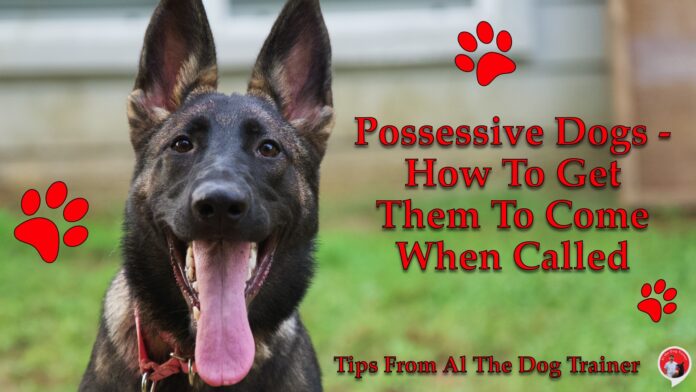Are you wondering why your furry friend gets super jealous when you pay attention to others? Some dog breeds are naturally more possessive than others. As a pet parent, understanding the most possessive dog breeds can help you better manage their behavior and strengthen your bond.
Understanding Canine Possessiveness
Possessiveness in dogs, also known as resource guarding, is a natural behavior where dogs become protective of things they value. While checking out various dog breeds at Pet like boss, I’ve learned that some breeds are more prone to this trait than others.
The Top Most Possessive Dog Breeds You Should Know
1. Border Collie
These super-smart puppers are known for their intense focus and dedication While they make amazing working dogs (check out more about working dogs in our dog section), their possessive nature can sometimes be overwhelming They’ll literally follow you to the bathroom!
2. Rottweiler
These big softies are among the most possessive dog breeds you’ll ever meet. They’re naturally protective and can get pretty jealous when their humans show affection to others. Their strong guarding instincts make them excellent watchdogs but require proper training.
3. English Cocker Spaniel
Don’t let their adorable faces fool you! These pups can be super clingy and possessive They’re known for developing strong attachments to one family member and might get a bit grumpy when their favorite human pays attention to others
4. Jack Russell Terrier
These little firecrackers are full of personality and possessiveness! They’re known to be one of the most possessive dog breeds when it comes to their toys and their humans. Their small size doesn’t stop them from trying to control everything in their territory!
5. Golden Retriever
Surprise! Even these friendly furballs can be possessive. While they’re generally social butterflies, they can develop strong attachments and show possessive behaviors, especially with their favorite humans or toys.
Managing Possessive Behavior
Here are some tips to help manage your possessive pupper:
- Early socialization is key
- Consistent training
- Positive reinforcement
- Professional help when needed
- Regular exercise and mental stimulation
The Bottom Line
Understanding that you have one of the most possessive dog breeds can help you better prepare for and manage their behavior. Remember, possessiveness isn’t necessarily bad – it’s just something that needs proper guidance and training.
FAQs About Possessive Dogs
How can I tell if my dog is being possessive?
Look for signs like:- Growling when others approach their stuff- Following you everywhere (like, literally EVERYWHERE)- Getting between you and other people/pets- Showing signs of anxiety when you interact with others
Can possessive behavior be corrected?
Yep! With patience, consistency, and sometimes professional help, possessive behaviors can be managed. It’s easier if you start training when they’re young, but old dogs can learn new tricks too!
Should I avoid getting a possessive breed?
Nah, just be prepared! Any breed can make an amazing pet with proper training and understanding. These breeds might need extra attention in certain areas, but they’re often super loyal and loving companions.
Tips for Living with a Possessive Dog
- Set clear boundaries
- Don’t encourage possessive behavior
- Provide plenty of exercise
- Use positive reinforcement
- Be patient and consistent
- Socialize them early
- Consider professional training
Remember, having one of the most possessive dog breeds isn’t a bad thing – it just means you need to understand their needs and behaviors better. With proper training and lots of love, these loyal pups can become the best companions ever!
Final Thoughts
Every dog is unique, even within breeds known for possessiveness. What matters most is understanding your furry friend’s personality and working with them to create a happy, healthy relationship. Whether you’ve got a clingy Collie or a protective Rottie, remember that their possessive behavior usually comes from a place of love and loyalty.
Keep in mind that while these breeds might be more prone to possessive behavior, any dog can develop these traits. The key is recognizing the signs early and addressing them with patience and consistency. And hey, sometimes a little possessiveness just means your pup loves you too much – not the worst problem to have, right?
Remember to always consult with professional trainers or behaviorists if you’re struggling with your dog’s possessive behavior. They can provide personalized advice and strategies for your specific situation.
Now go give your possessive pupper a big hug – just maybe not while they’re guarding their favorite toy!












